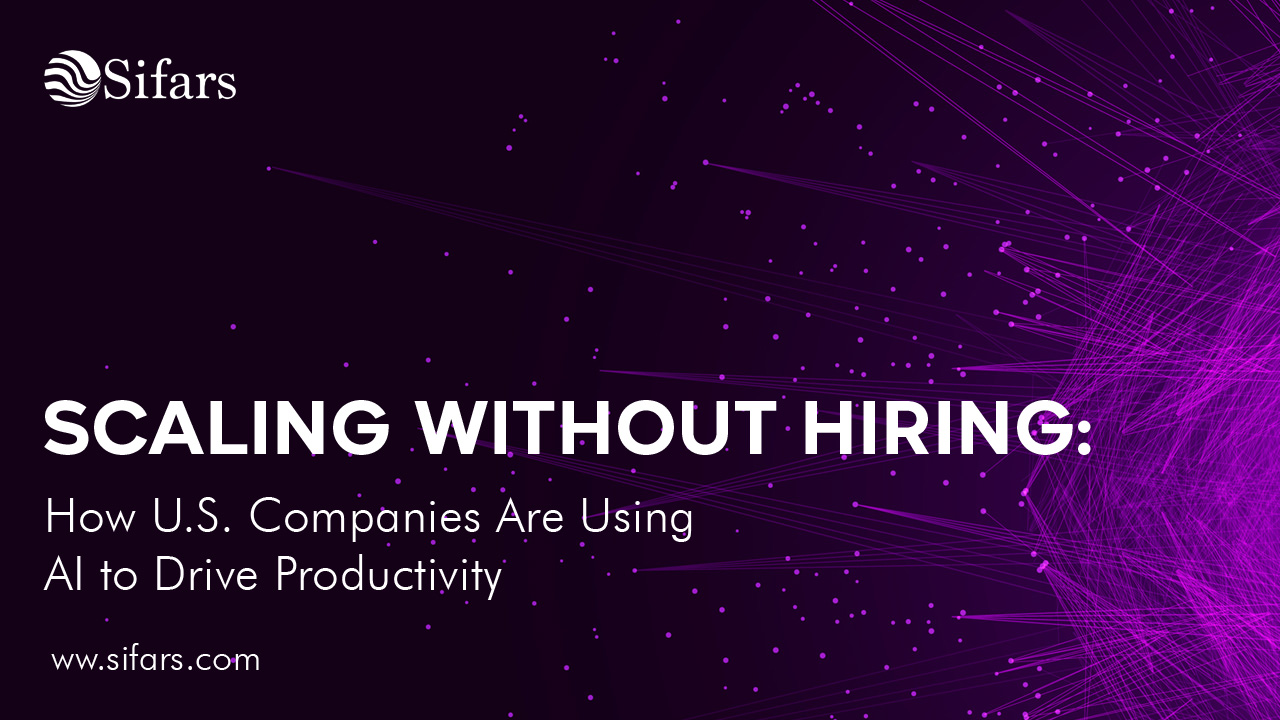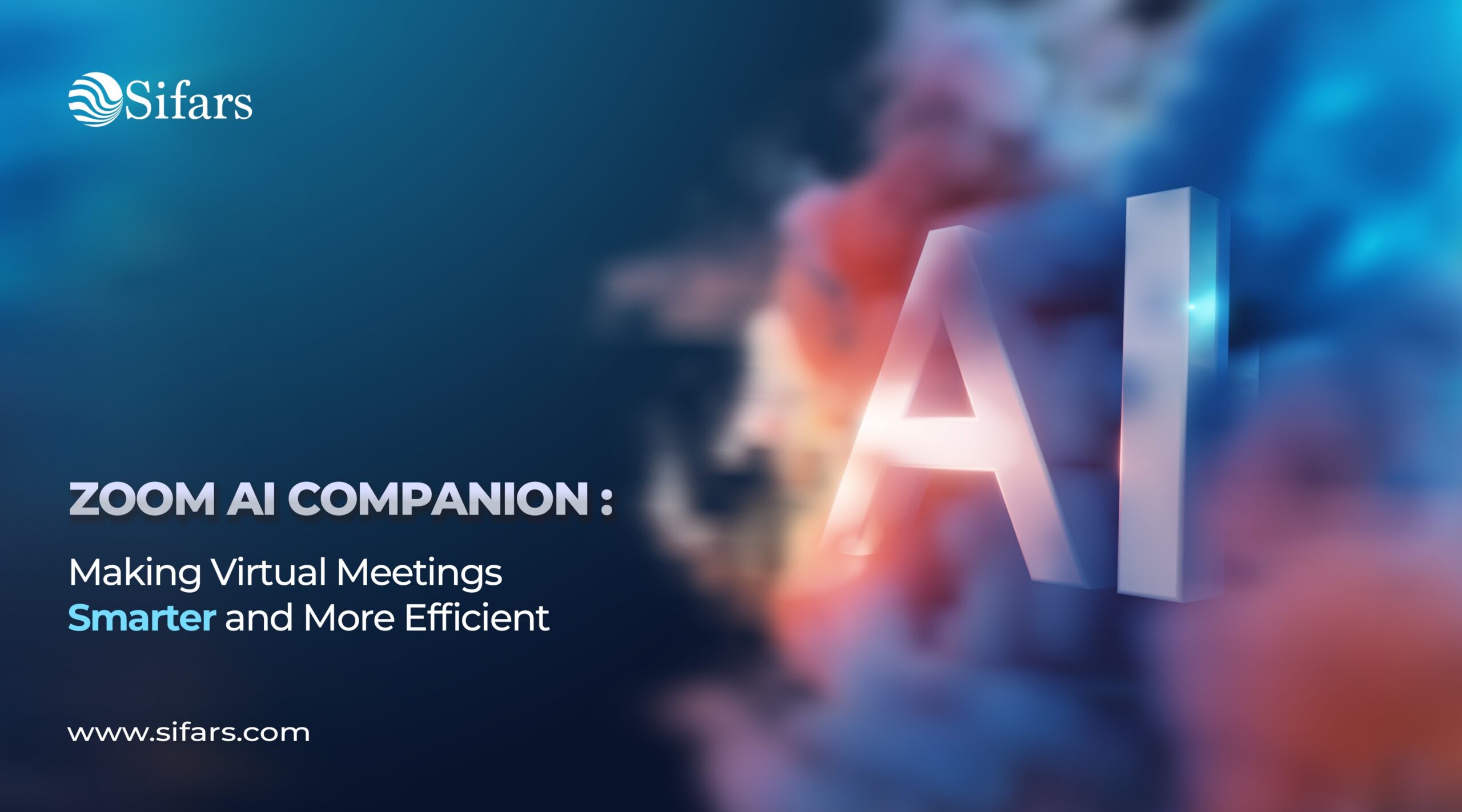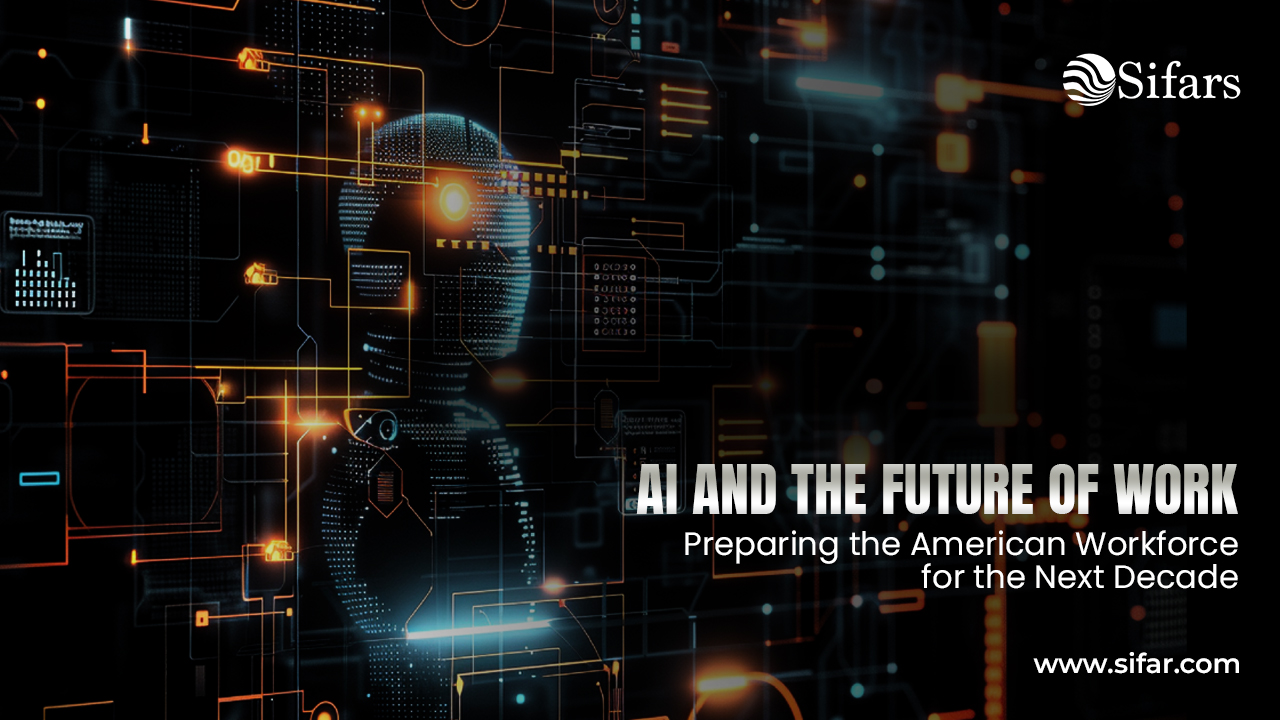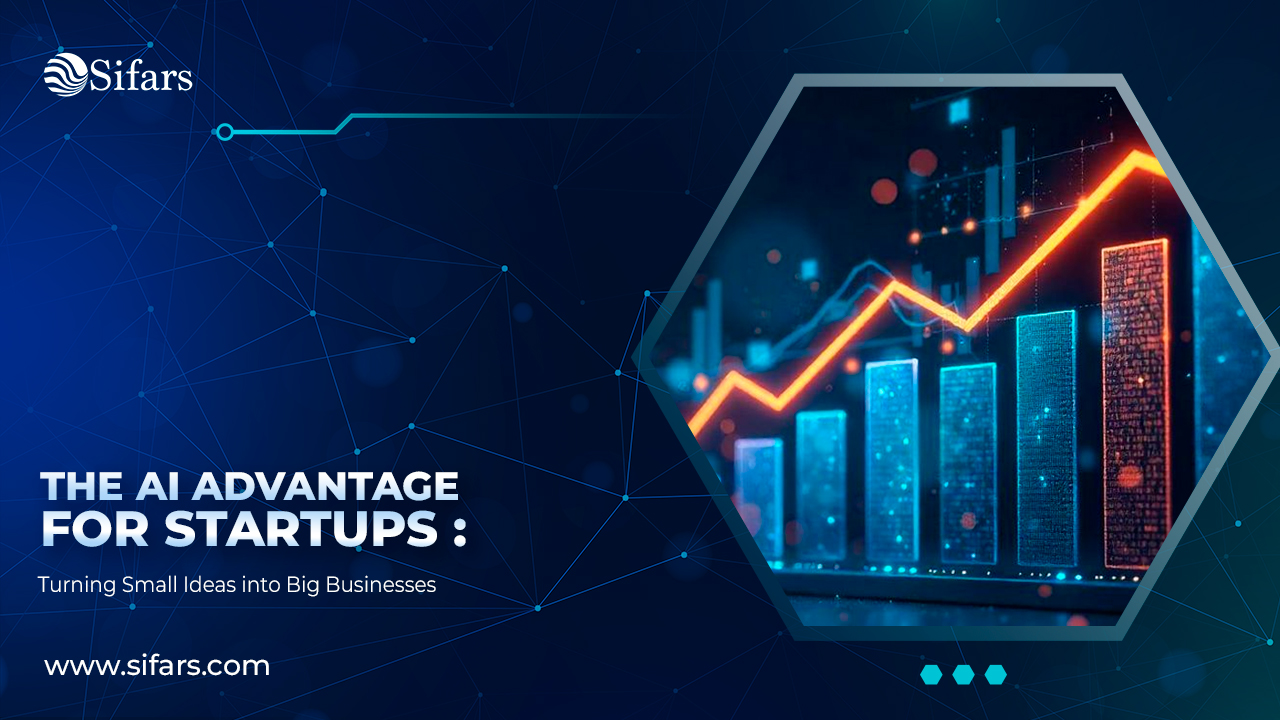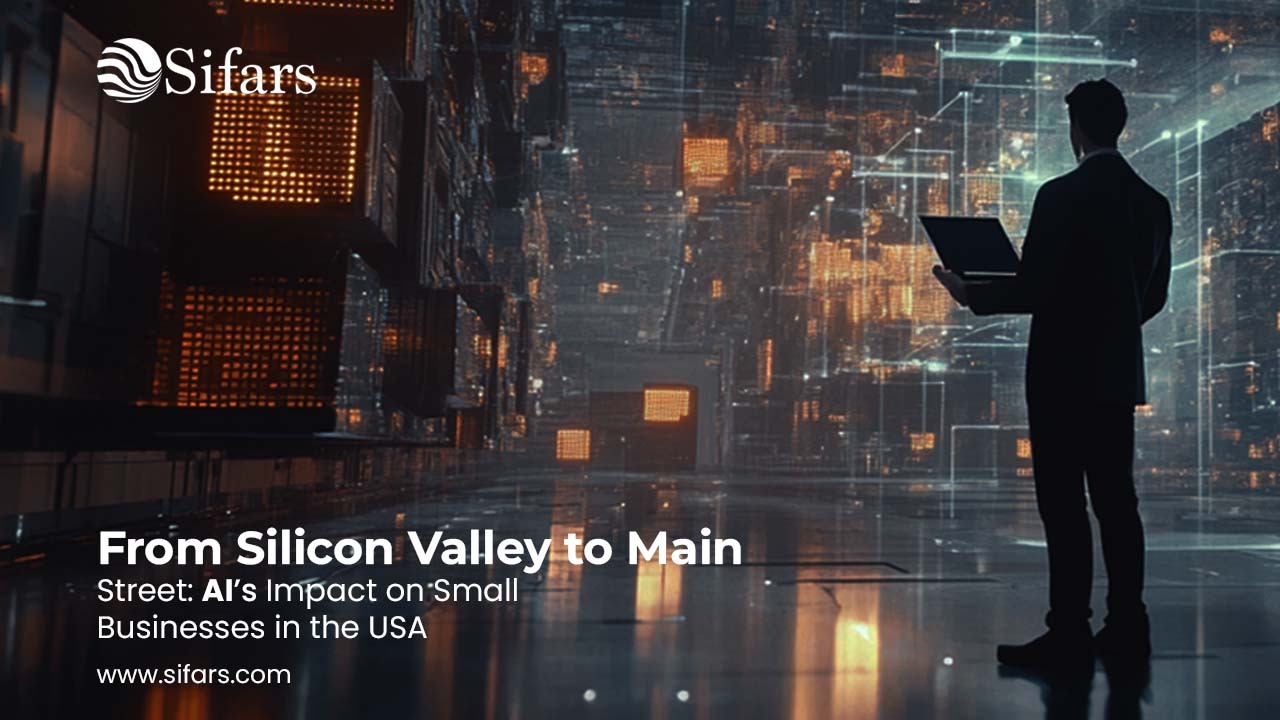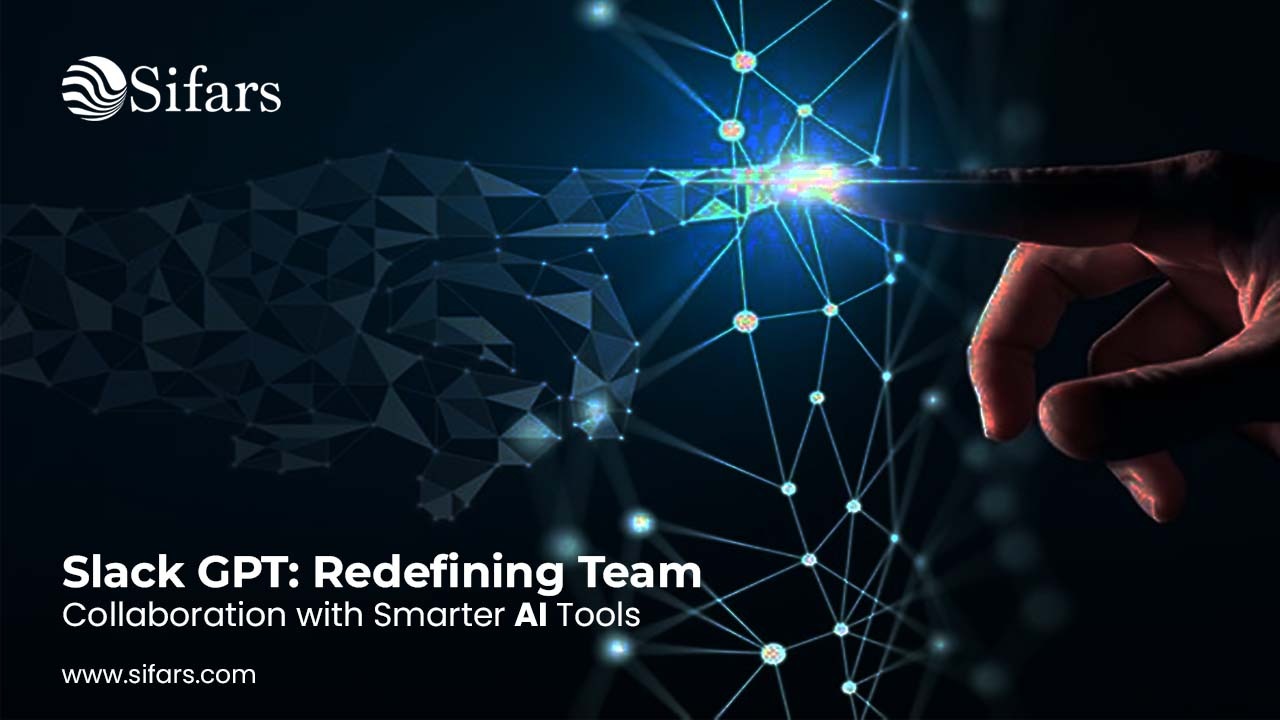The New Growth Dilemma
For decades, scaling a business meant expanding headcount. More employees equaled more output. But in today’s hyper-competitive U.S. market, companies face a paradox—demand for faster growth with fewer resources. Hiring is expensive, time-consuming, and often unsustainable, especially for startups and mid-sized businesses.
Enter Artificial Intelligence (AI)—the game-changer that allows organizations to scale without increasing staff. From automating workflows and analyzing big data to streamlining customer service, AI solutions are enabling U.S. companies to drive productivity, save costs, and innovate faster.
This blog explores how businesses in the United States are leveraging AI solutions to scale smarter, not bigger. We’ll cover real-world use cases, statistics, and actionable insights—positioning AI not as a futuristic concept, but as today’s growth partner.
Why Traditional Scaling Models Are No Longer Sustainable
Hiring in the U.S. has become increasingly challenging:
- Rising costs: Average cost-per-hire is around $4,700, excluding training and onboarding.
- Labor shortages: By 2030, the U.S. could face a shortage of 6 million workers.
- High turnover: The average U.S. employee tenure is just over four years.
This creates a pressing question for CEOs and decision-makers: How can companies grow output without endlessly hiring?
AI offers the answer.
The AI Advantage: Scaling Beyond Human Limits
AI-powered systems don’t get tired, don’t need vacation, and can process data at a speed no human can match. But more importantly, they augment human intelligence—helping teams achieve 10x more with the same resources.
Here’s how U.S. companies are applying AI solutions:
- Business Automation with AI – Streamlining repetitive workflows like invoice processing, HR onboarding, and supply chain management.
- AI Consulting & Strategy – Partnering with experts to implement tailored AI roadmaps.
- Artificial Intelligence Services – Leveraging natural language processing (NLP), predictive analytics, and machine learning models for decision-making.
- AI for Businesses at Every Stage – From startups to Fortune 500s, AI tools are now accessible to all.
Key Areas Where U.S. Companies Use AI to Scale
1. Customer Support: AI-Powered Chatbots & Virtual Assistants
- AI chatbots resolve up to 80% of routine queries, reducing dependency on large support teams.
- Virtual assistants like Zoom AI Companion and Slack GPT integrate directly into workspaces, enhancing productivity.
- Case Example: Bank of America’s “Erica” AI assistant has served over 35 million customers with real-time financial guidance.
2. Marketing & Sales: Smarter CRM with AI
- Platforms like HubSpot AI-powered CRM help SMBs personalize campaigns at scale.
- AI-driven predictive analytics increases conversion rates by 20–30%.
- Automated lead scoring and content generation save hours of manual work.
3. Operations: Process Automation
- AI optimizes supply chains by predicting delays and suggesting alternate routes.
- In manufacturing, predictive maintenance reduces downtime by 30–50%.
- RPA (Robotic Process Automation) tools free up employees from repetitive tasks.
4. HR & Recruitment: AI in Talent Management
- AI reduces time-to-hire by 40% by screening resumes at scale.
- Predictive analytics identify employees at risk of leaving.
- AI-driven learning platforms personalize employee training.
5. Finance & Risk Management
- AI algorithms detect fraud faster than manual checks.
- Predictive analytics helps CFOs forecast cash flow with 95% accuracy.
- AI-driven platforms like Wise (TransferWise) are transforming global money transfers with transparency and speed.
Case Studies: AI Driving Productivity in U.S. Businesses
Case Study 1: Retail Giant Walmart
Walmart leverages AI for inventory management and customer experience. By automating stock monitoring and using AI-driven demand forecasting, Walmart reduces waste and ensures product availability—without needing thousands of extra employees.
Case Study 2: Healthcare & Telemedicine
U.S. telehealth companies use AI-driven chatbots to pre-screen patients, analyze symptoms, and recommend care pathways—helping doctors serve more patients efficiently.
Case Study 3: Financial Services
Fintech startups like Plaid and Revolut use AI for secure data sharing, fraud prevention, and financial automation—delivering more services without bloating teams.
Statistics That Prove the AI Advantage
- 35% of U.S. businesses already use AI, while 42% are exploring AI adoption (IBM Global AI Adoption Index).
- Companies using AI report a 15–25% productivity increase in core operations.
- AI-driven automation could save U.S. businesses $4.1 trillion annually by 2030 (McKinsey).
How Small and Mid-Sized U.S. Businesses Can Adopt AI
Many SMBs think AI is only for tech giants. That’s no longer true. Affordable tools like:
- ChatGPT for content automation
- HubSpot AI CRM for sales
- Zoom AI Companion for meetings
- RPA software for workflows
…allow small companies to scale like enterprise players—without adding headcount.
Overcoming Challenges in AI Adoption
While the benefits are clear, some hurdles remain:
- Data readiness: Many companies lack structured, clean data.
- Talent gaps: AI consulting partners (like Sifars) can bridge expertise shortages.
- Integration issues: AI must seamlessly fit into existing systems.
- Change management: Employees need training to embrace AI, not fear it.
Actionable Insights for U.S. Companies Considering AI
- Start small – Pilot AI in one department before scaling company-wide.
- Invest in AI consulting – Tailored roadmaps accelerate adoption.
- Prioritize ROI-driven use cases – Choose AI projects that deliver measurable results.
- Train your workforce – Ensure employees collaborate effectively with AI systems.
The Future of Scaling: AI as a Strategic Partner
By 2035, AI could boost U.S. business productivity by 35% or more. The future isn’t about replacing employees—it’s about enabling them to do more with less.
AI is the co-worker of the future, helping businesses of all sizes scale sustainably, reduce costs, and innovate continuously.
Scale Smarter with Sifars
Scaling without hiring is no longer a dream—it’s a strategic reality powered by AI. U.S. businesses across industries are already reaping the rewards of automation, AI consulting, and intelligent solutions.
At Sifars, we help companies navigate this transformation by designing AI roadmaps, implementing automation, and delivering tailored AI solutions for businesses. Whether you’re a startup or an established enterprise, we can help you scale smarter, faster, and more efficiently—without adding unnecessary headcount.
Ready to explore how AI can transform your business? Connect with Sifars today.
FAQs
Q1. How can AI help companies scale without hiring more employees?
AI automates repetitive tasks, enhances decision-making, and boosts efficiency, allowing businesses to increase output without adding headcount.
Q2. What are the main benefits of using AI solutions in U.S. businesses?
AI improves productivity, reduces costs, streamlines operations, strengthens customer support, and helps businesses innovate faster.
Q3. Which industries in the U.S. are adopting AI to scale?
AI adoption is strong in retail, finance, healthcare, manufacturing, and SMB sectors, where automation and efficiency are critical.
Q4. Is AI affordable for small and mid-sized U.S. businesses?
Yes, affordable AI tools like CRM platforms, chatbots, and workflow automation software make AI accessible to startups and SMBs.
Q5. How can Sifars support businesses in scaling with AI?
Sifars provides AI consulting, custom AI solutions, and business automation strategies to help companies grow efficiently and sustainably.
